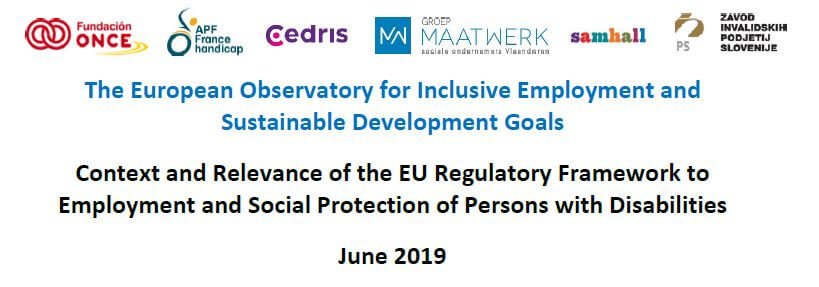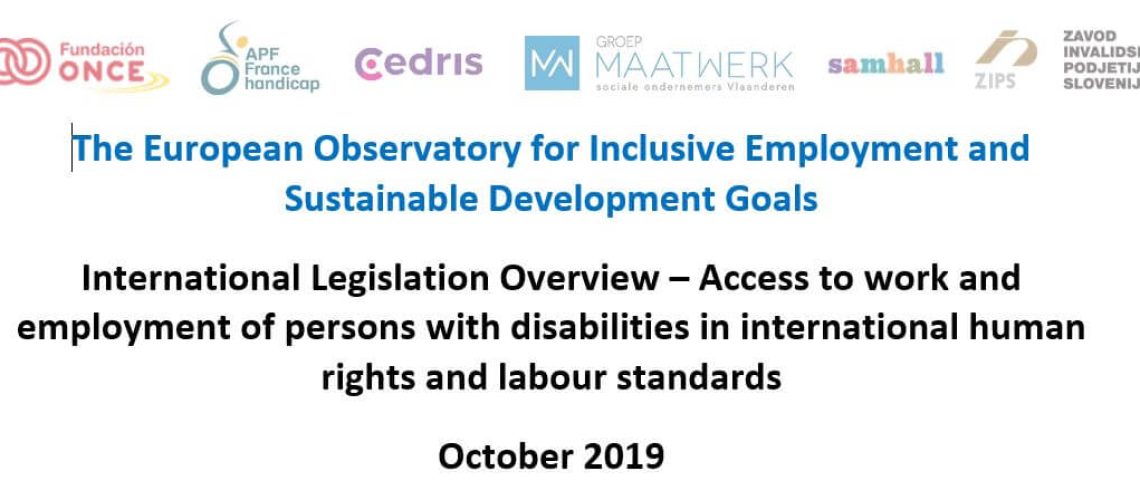2019, Europe – Reviewing legal and policy obligations about access to employment for European with disabilities (Resource 1)
50% of working-age Europeans with disabilities are in employment, compared to 75% of persons without disabilities (European Council). Over the past decade figures have not changed much. Yet – in our society, employment remains the main gate to economic autonomy and social inclusion. So, how can we significantly change this state of play?
This article is part of a series. It is about international and European legislation promoting access to work and employment for persons with disabilities.
From 2019 to 2021, Commoning Founder and Director Nadège [lien vers About Nadege] technically supported the D-WISE network. It is a partnership composed of the so-called Work Inclusion Social Enterprises (WISEs) from various European countries. It raises awareness about these enterprises’ role in creating employment and facilitating the labour inclusion of persons with disabilities in Europe. It is promoted by Fundación ONCE in the framework of the Disability Hub Europe and co-financed by the European Social Fund.
The first step consisted in taking stock of what legislation says in that matter. A review of the main international and European laws and policies was produced. This served as background information to decide on future activities.
Overview of international legislation

This overview brought a larger perspective. It presents how international human rights and labour legislation promote access to work and employment for persons with disabilities. It specifically explains the relevant provisions contained in:
- The United Nations (UN) Agenda 2030 and its 17 Sustainable Development Goals (SDGs)
- The UN Convention on the Rights of Persons with Disabilities
- The specific Conventions and Recommendations of the International Labour Organisation (ILO)
Overview of European Union (EU) legislations and policies

This overview introduces the EU approach to employment and social protection of persons with disabilities. In particular, it presents:
- The most recent employment and unemployment rates of working-age European with disabilities of Eurostat
- The legislation having an indirect impact on work and employment of persons with disabilities
- The specific measures adopted by the EU to promote work and employment of European with disabilities
Download the International legislation overview and the European legislation overview (pdf documents)
Series of articles:
- Article 1 is about the existing international and European legislation overview
- Article 2 is about the 6 case studies presenting best practices, examples and stories from European enterprises employing persons with disabilities
- Article 3 is about policy recommendations to national and European decision-makers on how to promote access to employment for persons with disabilities
